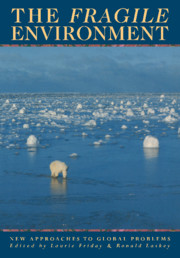3 - Attitudes to animals
Published online by Cambridge University Press: 03 May 2010
Summary
It is all but impossible to make any statement about human attitudes to animals that is both a generalisation and true. There are few areas of our lives where our attitudes to anything are as confused and tangled as they are in the way we think about and treat animals.
This is perhaps not surprising. We are confused enough in our attitudes to just one kind of animal – members of our own species. Just think what humans do to other humans: love them, nurture them, defend them with our lives, kill them, torture them, let them die of neglect, use them as slave labour, admire, revere, despise and so on. Attitudes to other species of animal include all this variety as well as an even greater range of attitudes brought about by the even greater range of roles that animals can play in our lives: they can be food, companions, entertainment, sport, deities or dangerous nuisances. No wonder that our attitudes towards animals vary between extremes.
To quote Albert Schweitzer:
A man is truly ethical only when he obeys the compulsion to help all life which he is able to assist, and shrinks from injuring anything that lives. He does not ask how far this or that life deserves one's interest as being valuable, nor, beyond that, whether and how far it can appreciate such interest. Life as such is sacred to him. He tears no leaf from a tree, plucks no flower and takes care to crush no insect. […]
- Type
- Chapter
- Information
- The Fragile EnvironmentThe Darwin College Lectures, pp. 41 - 60Publisher: Cambridge University PressPrint publication year: 1989

